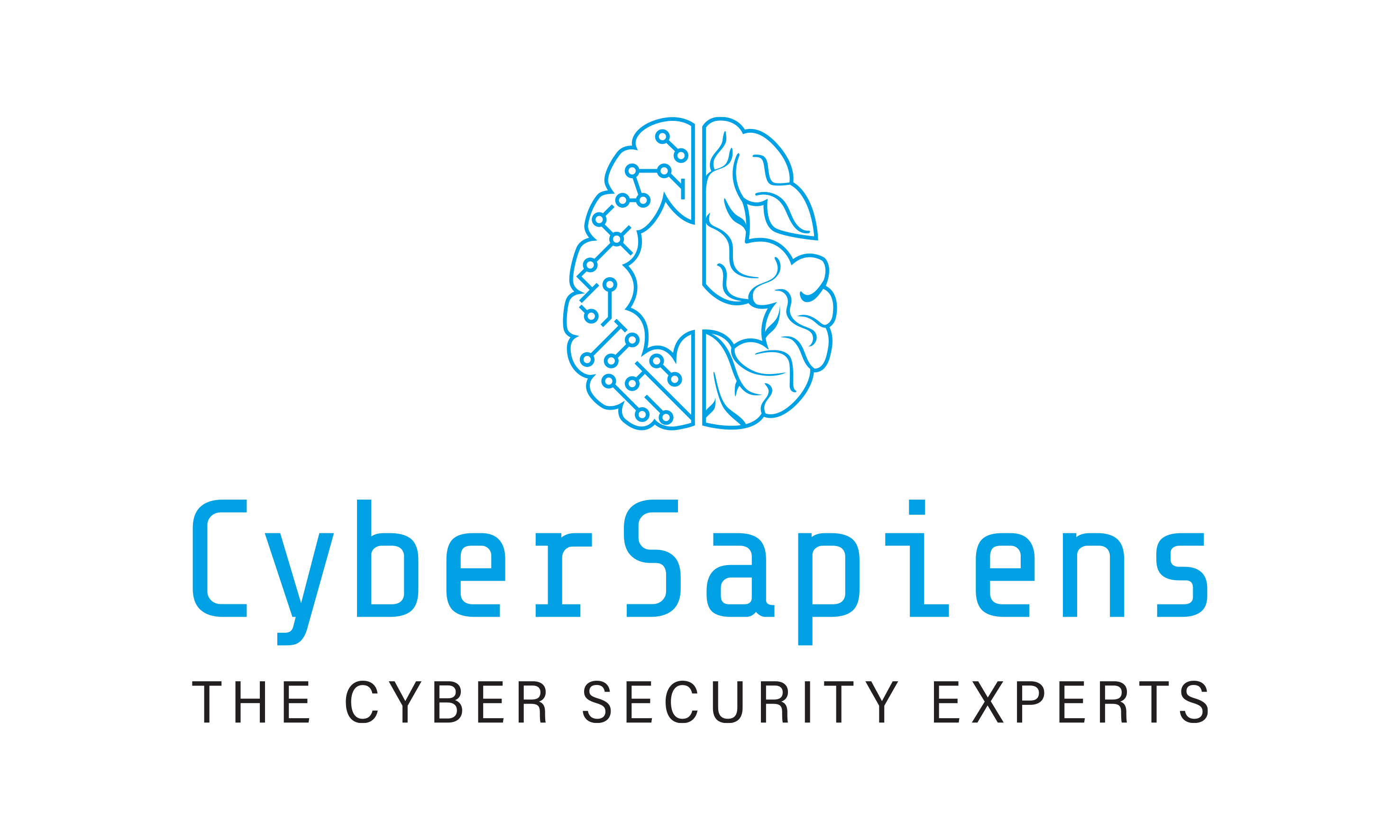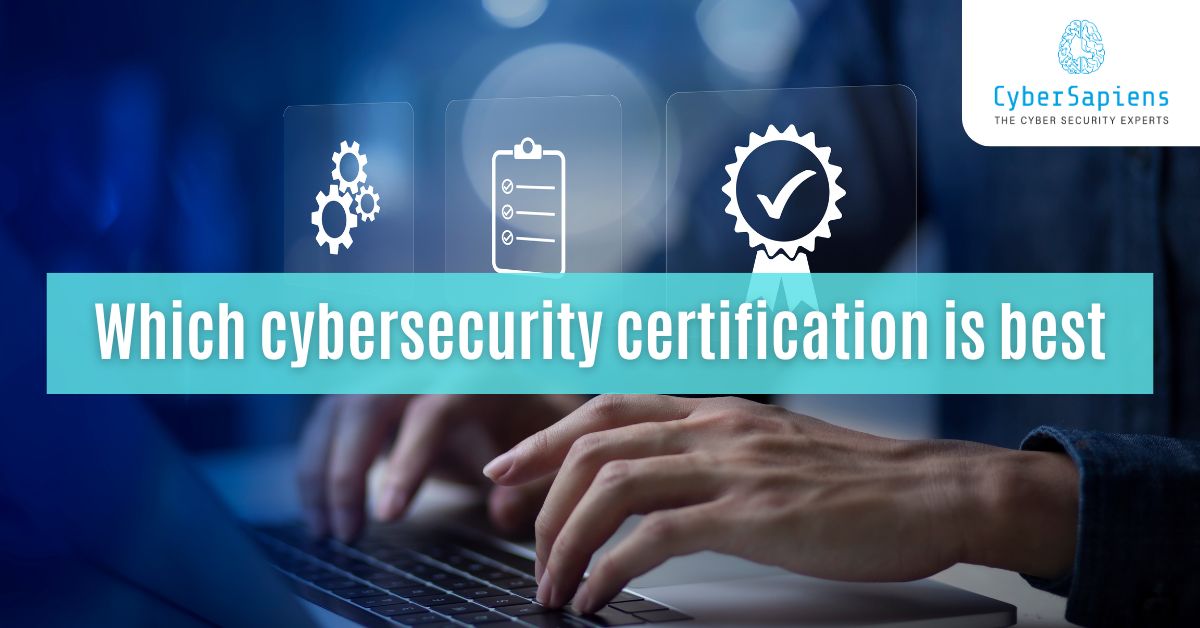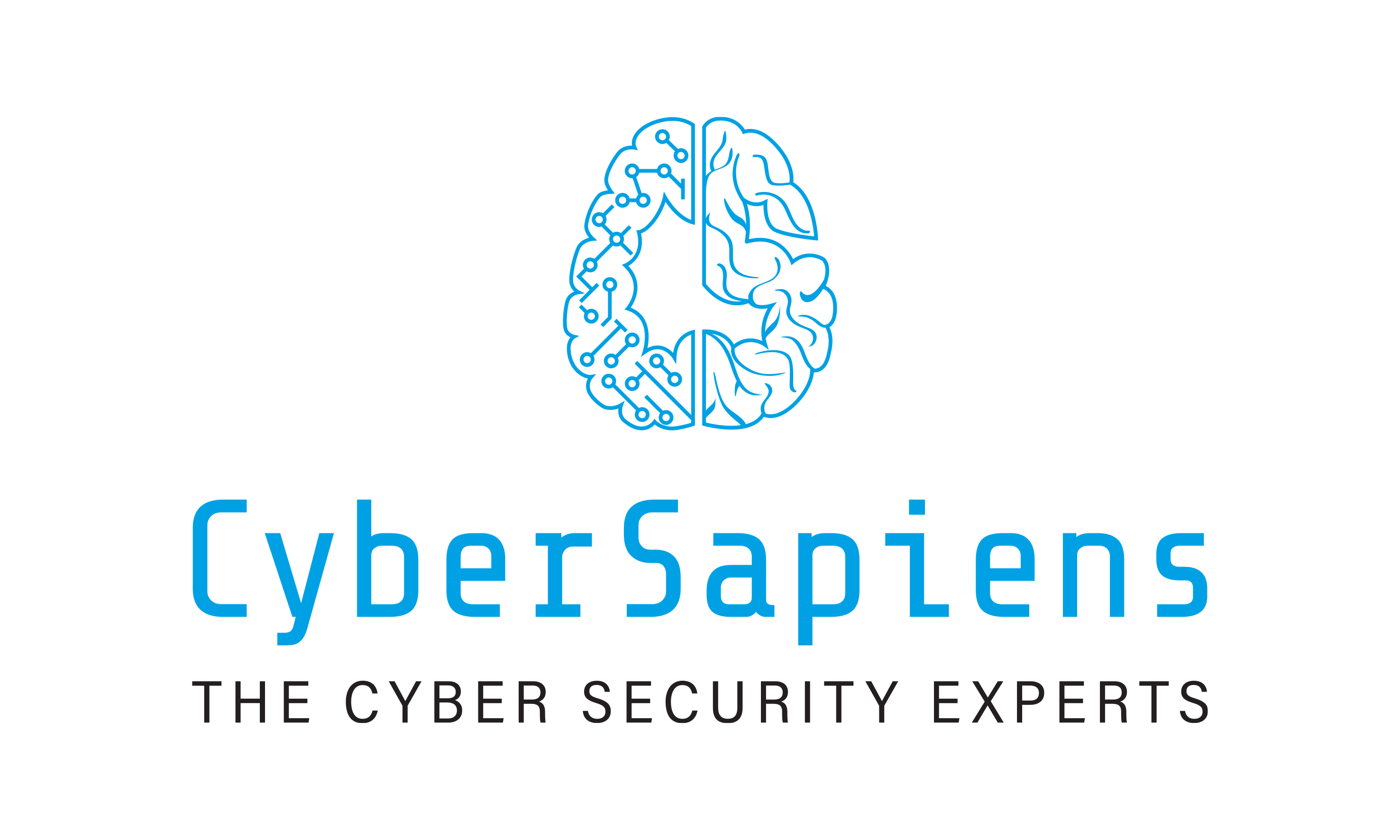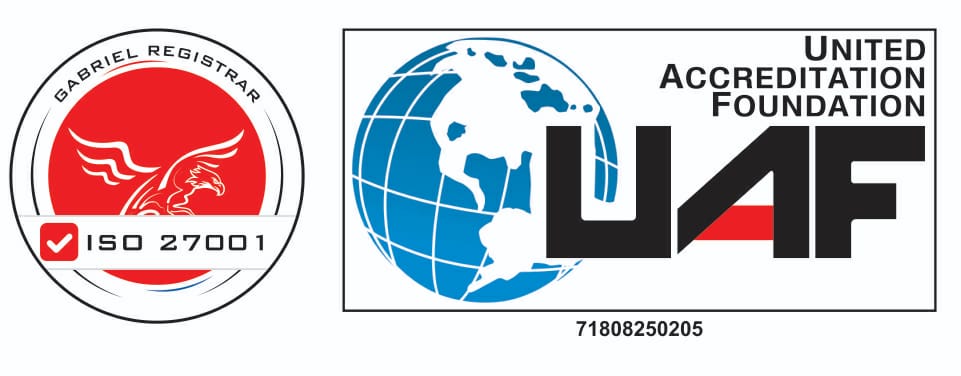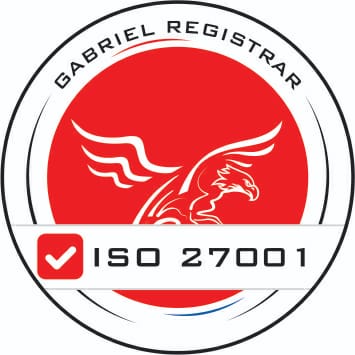The cybersecurity battleground is a very complicated one in which the enemies are always on the move and hackers are keeping up with the technology and creating even more advanced hacking techniques.
To effectively counter these threats, the companies should be equipped with many expert personnel who are all holding cybersecurity qualifications. However, considering a huge selection of certifications, choosing the top one might look like selecting a single weapon for every fight.
Indeed, it’s hard to say which cybersecurity certification is best since they’re usually designed for different goals.
The selection of the best option will depend on the level of your experience, on the career goals that you have and on the sector of cybersecurity that you are interested in.
Following this comprehensive guide to cyber security certifications will arm the reader with the knowledge to understand the various types of certificates available today and to choose the one that suits the user best for professional success.
Factors to Consider Before Choosing a Cybersecurity Certification
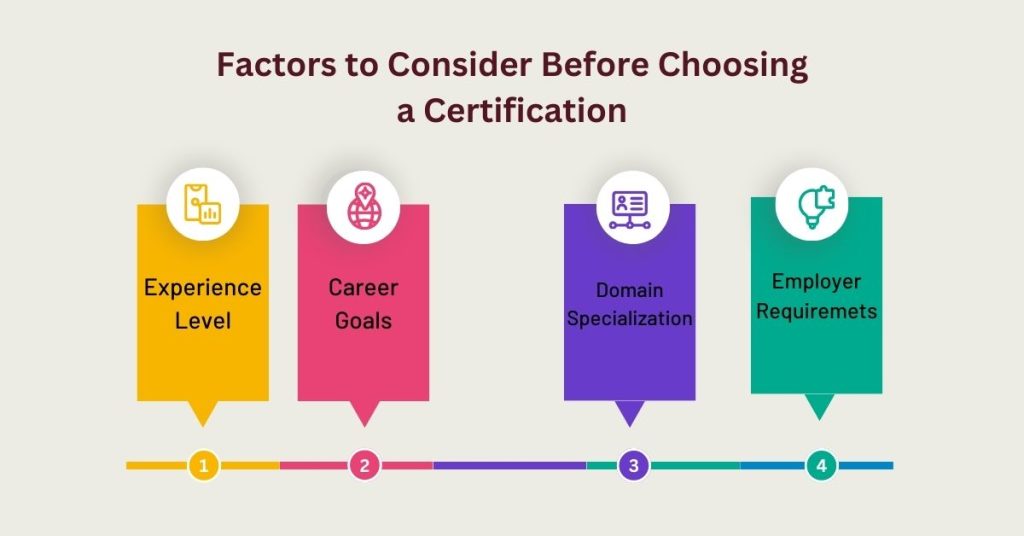
| Experience Level | A question for you; do you want to become a cybersecurity analyst, pentester or security architect? Several certifications are directly linked to a specific skill set that is needed to achieve a desired career path. |
| Career Goals | A question for you; do you want to become a cybersecurity analyst, pentester or security architect? Several certifications are directly linked to a specific skill set that are needed to achieve a desired career path. |
| Domain Specialization | A question for you; do you want to become a cybersecurity analyst, pentester or security architect? Several certifications are directly linked to a specific skill set that is needed to achieve a desired career path. |
| Employer Requirements | In case there are some special job qualifications for a particular sector or class of employers who require positions in cybersecurity. Find out which certificates will be appreciated the most in the job segment that you are targeting. |
Top Cybersecurity Certifications for Different Career Stages
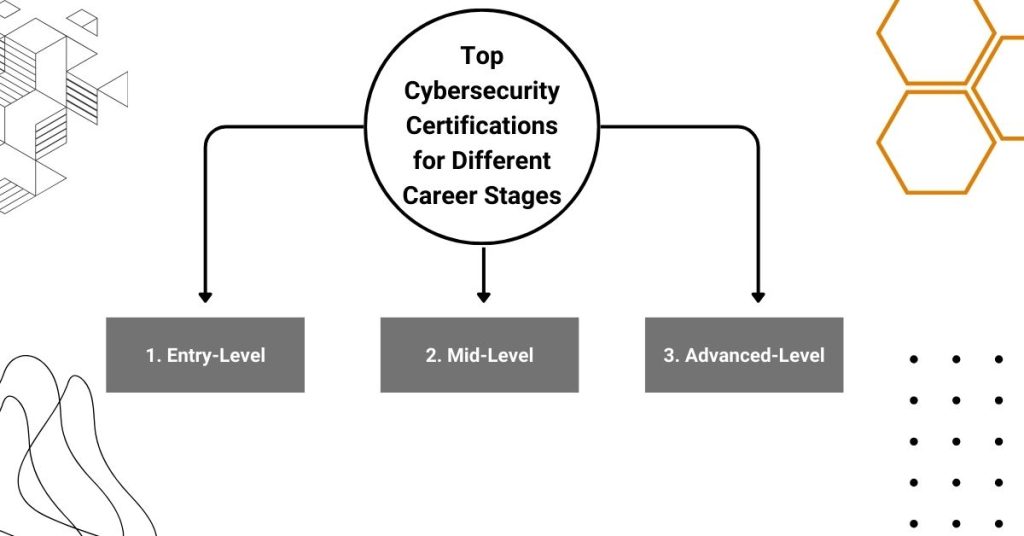
1. Entry-Level
CompTIA Security+: This certification is vendor-neutral and hence it adds to the fundamental knowledge of cybersecurity, which makes it popular due to its entry/beginner level. It is security concepts, threats, vulnerabilities and controls that cross many domains on which it dwells.
(ISC)² Certified Secure Information Systems Professional (CISSP Associate): The associated with an entry-level version of the leading CISSP certification that assesses base-level cybersecurity knowledge equips professionals for further advancements thereby enhancing their career development.
2. Mid-Level
CompTIA Cybersecurity Analyst (CySA+): This certification is aimed at security experts as they learn how to use advanced techniques for security analysis, for instance for detecting threats, responding to incidents and managing vulnerabilities. It is this student who wishes to turn into a security analyst.
Certified Ethical Hacker (CEH): Such a certification builds the ethical hacking abilities among people allowing them to detect and address weaknesses in the concerned systems before being abused by intended hackers. It’s very important for experienced individuals in the field as well as consultants.
3. Advanced-Level
Certified Information Systems Security Professional (CISSP): This certification is usually referred to as CISSP and it symbolizes the high level of cybersecurity expertise in the industry. It is also seen as a sign of a broad understanding of cybersecurity-related principles and best practices that are being used. It asks for five years of work time.
GIAC Security Expert (GSE): This specific certification is made exclusively for senior security workers who have developed field experience in many areas like assessments, incident response, and malware analysis.
Alright guys, here are some of the best cybersecurity courses you can explore:
- Flagship Cybersecurity Training Program “Cyber Fusion”
- Bug Bounty Course
- VAPT Certification Course
- Web Application Security Training
- Certified Ethical Hacker Course | CEH v12 Course
Conclusion
Choosing the right cybersecurity certification is an investment in your career. By understanding your goals, experience level, and desired domain specialization, you can make an informed decision.
Remember, certifications are valuable tools, but combined with a strong technical foundation, hands-on experience, and a commitment to continuous learning, you’ll be well-equipped to thrive in the ever-evolving world of cybersecurity.
FAQs
1. Do I need a cybersecurity certification to get a job?
Ans: While not always mandatory, cybersecurity certifications significantly enhance your resume and showcase your commitment to the field. Many employers actively seek candidates with relevant certifications, giving you a competitive edge in the job market.
2. Can I start with a free cybersecurity certification?
Ans: Absolutely! Several online platforms offer free introductory courses and basic certifications in cybersecurity. While these might not hold the same weight as industry-recognized certifications, they provide a solid foundation and demonstrate your initial interest in the field.
3. How often do cybersecurity certifications need to be renewed?
Ans: Most industry-recognized certifications require ongoing professional development (CPD) for renewal. This typically involves completing continuing education courses or attending industry events to ensure certified professionals stay updated with the latest threats and technologies.
4. Is there a specific certification path I should follow?
Ans: There isn’t a single, linear path. The ideal certification journey depends on your experience level, career goals, and chosen cybersecurity domain. Consider starting with entry-level certifications like CompTIA Security+ and progress to more specialized certifications aligned with your interests, like Certified Ethical Hacker (CEH) for penetration testing or (ISC)² Certified Information Systems Security Professional (CISSP) for security management.
5. What resources can help me find cybersecurity jobs?
Ans: Numerous online job boards specialize in cybersecurity roles. Popular options include Indeed, Glassdoor, (ISC)² Job Board, and SANS Institute Job Board. Additionally, consider joining cybersecurity communities on platforms like LinkedIn and attending industry events to network with professionals and explore job opportunities.
6. How much time should I dedicate to preparing for a certification exam?
Ans: The preparation time varies based on the chosen certification and your existing knowledge. Entry-level exams might require 2-3 months of dedicated study, while advanced certifications could demand 6 months or more. Utilize practice exams, study guides, and online resources to maximize your preparation.
7. What are some alternative ways to gain experience besides certifications?
Ans: There are several ways to gain valuable practical experience. Participate in capture-the-flag (CTF) competitions where you ethically exploit vulnerabilities in simulated environments. Additionally, consider volunteering for cybersecurity projects with non-profit organizations or open-source communities.
8. How can I stay updated on the latest cybersecurity trends and threats?
Ans: The cybersecurity landscape is constantly evolving. Make a habit of reading industry publications, attending conferences, and following reputable cybersecurity blogs and social media communities. This ensures you stay informed about emerging threats and adapt your skillset accordingly.

